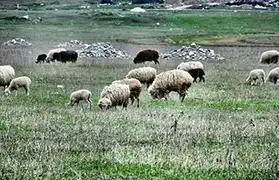Learn Adyghe easily and fast
Learn Adyghe fast and easily with our language course ‘Adyghe for beginners’.
![em]() English (US]
»
English (US]
»
![ad.png]() адыгабзэ
адыгабзэ
| Learn Adyghe - First words | ||
|---|---|---|
| Hi! | Сэлам! | |
| Hello! | Уимафэ шIу! | |
| How are you? | Сыдэу ущыт? | |
| Good bye! | ШIукIэ тызэIокIэх! | |
| See you soon! | ШIэхэу тызэрэлъэгъущт! | |
What is the best way to learn the Adyghe language?
Learning the Adyghe language can seem daunting at first. However, immersing yourself fully in the language is arguably the most effective approach. Listening to native speakers through music, movies, and conversations can significantly improve comprehension and pronunciation. Starting with the basics is crucial for building a strong foundation. Focus on learning common phrases, greetings, and essential grammar. This initial step creates a framework that makes it easier to progress to more complex concepts.
Engaging in regular practice is key to mastering Adyghe. Dedicate a specific time each day to practice speaking, writing, and reading in the language. Consistency in practice reinforces learning and helps in retaining information better. Utilizing language learning apps and online resources can supplement traditional learning methods. These platforms offer interactive lessons that are both engaging and informative. They often include exercises that test your knowledge and track progress.
Joining language exchange communities or finding a language partner is another beneficial strategy. Conversing with a native speaker allows for real-time feedback and helps in understanding cultural nuances. This interaction enhances learning and fosters a deeper connection with the language. Incorporating Adyghe into your daily routine is a practical way to learn. Labeling household items with their Adyghe names, changing device languages, or following Adyghe social media accounts are simple methods to increase exposure.
Reading Adyghe literature and news articles offers insight into the language’s structure and vocabulary. It also exposes learners to different writing styles and contexts, broadening their understanding and appreciation of the language. Attending language courses or workshops provides structured learning. These settings offer personalized guidance from experienced instructors. The collaborative environment encourages interaction and practice among learners, facilitating a comprehensive learning experience.
Even Adyghe beginners can learn Adyghe efficiently with ‘50LANGUAGES’ through the practical sentences. First you will get to know the basic structures of the language. Sample dialogues help you to express yourself in the foreign language. Prior knowledge is not required.
Even advanced learners can repeat and consolidate what they have learned. You learn correct and frequently spoken sentences and you can use them immediately. You will be able to communicate in everyday situations. Use your lunch break or time in traffic to learn a few minutes of Adyghe. You learn on the go as well as at home.
Learn for free...
Learn Adyghe with the Android and iPhone app ‘50LANGUAGES’
The Android or iPhone app ‘Learn 50 languages’ is ideal for all those who want to learn offline. The app is available for Android phones and tablets as well as iPhones and iPads. The apps include all 100 free lessons from the 50LANGUAGES Adyghe curriculum. All tests and games are included in the app. The MP3 audio files by 50LANGUAGES are a part of our Adyghe language course. Download all audios for free as MP3 files!








